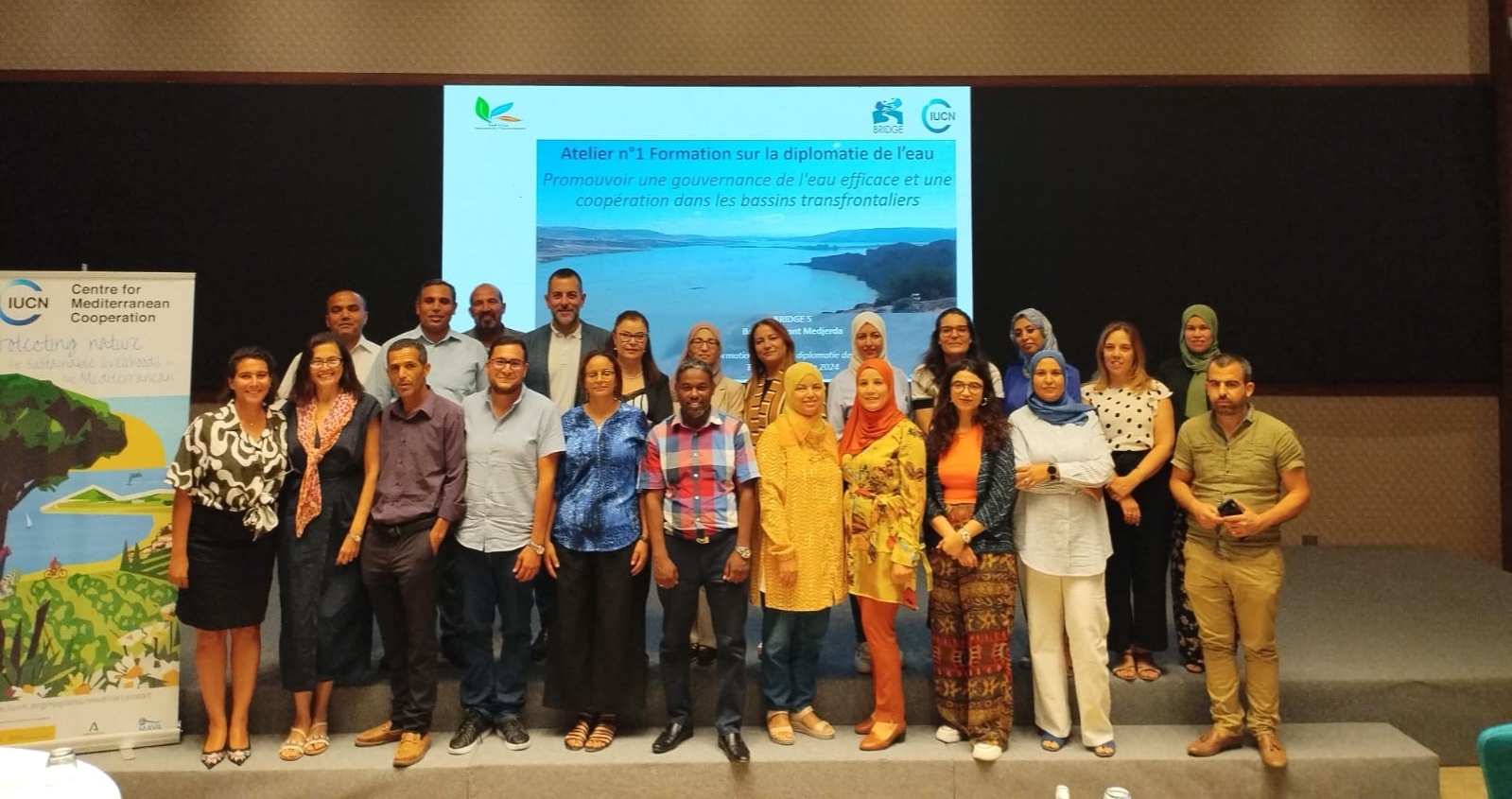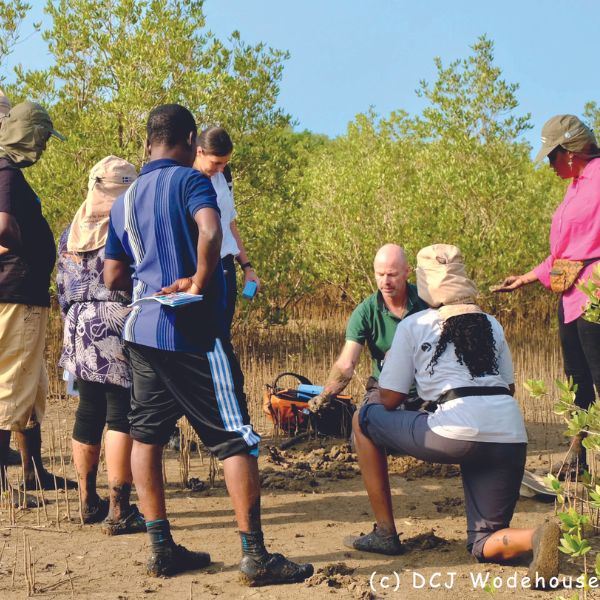Living in Harmony with Nature - Application of Nature-based Solutions in the Meghna river basin
A film produced by IUCN on Nature-based Solutions (NbS) [1] in the Meghna river basin showcases the various ecosystem services it provides, and highlights community- and government-led efforts to address climate, water and food security issues through its application.
Over 30 individuals from local government, civil society organisations and indigenous communities across six different locations in Bangladesh and India were interviewed and featured in the film, capturing short case studies and lessons learned.
For centuries, rural and indigenous communities in the Meghna river basin have been living in harmony with nature. It is estimated that more than 50 million people in the north-eastern part of India and Bangladesh, including forest-dependent communities such as the Chakpa, Garo, Jaintia, and Khasi, as well as fishermen and farmers, are highly dependent on the ecosystem services provided by in the basin.
Some of these communities have applied NbS for centuries, while others have done so as a response to the degradation of ecosystem services. NbS also resonates with government policies surrounding the Meghna river basin. One such example is the return of Hilsa, a Critically Endangered fish species, as a result of national-level policy intervention in Bangladesh.
Lessons learned and way forward:
- NbS in the Meghna river basin are often locally-led by communities, civil society organisations or local governments. However, there are challenges to upscaling these locally-led NbS practices. The benefits of NbS approaches should be captured and shared amongst the government, private sector, and communities living across the basin to facilitate its replication and upscaling.
- Governments need to support research and knowledge sharing, further developing local technical capacity to implement and upscale NbS.
- There is a need to promote the use of existing tools to evaluate ecosystem services and the role of NbS in solving local to transboundary water issues.
- A priority is to facilitate integration of indigenous communities and their knowledge in designing NbS strategies and how it can be mainstreamed in national plans and policies.
Between 2020-2022, IUCN has facilitated community engagement in regional benefit-sharing dialogues in the Meghna river basin and supported the documentation of community involvement in the conservation and management of the basin’s natural resources.
For more information, please visit: BRIDGE in the Ganges-Brahmaputra-Meghna river basins (BRIDGE GBM) | IUCN
[1] IUCN defines NbS as “actions to protect, sustainably manage, and restore natural and modified ecosystems that address societal challenges effectively and adaptively, simultaneously providing human well-being and biodiversity benefits.”
-------------------------------------------------------------------------------------------------------------------------
IUCN has received funding support from the Swedish International Development Cooperation Agency (SIDA) through the Oxfam Transboundary Rivers of South Asia (TROSA) programme.



